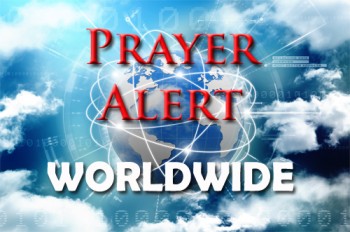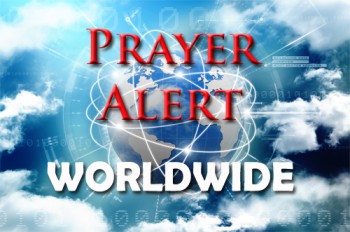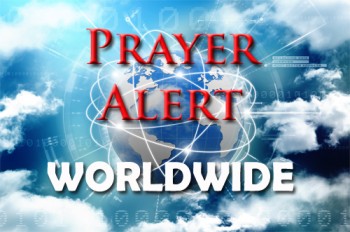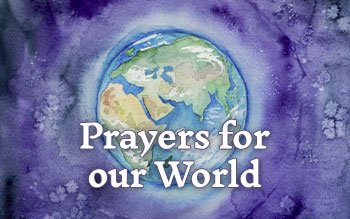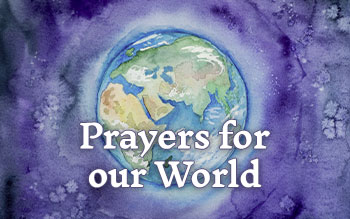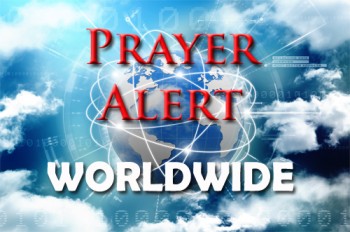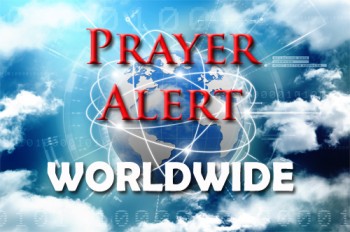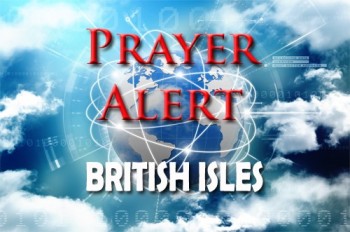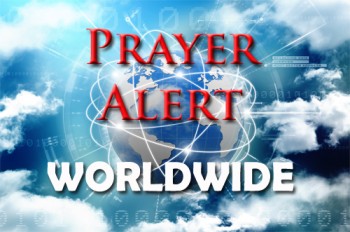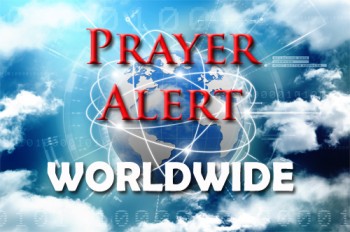Displaying items by tag: Iran
Gulf of Oman: escalating tensions
On 16 June the Saudi crown prince said he would ‘deal with’ threats to his people and vital interests following attacks on tankers in the Gulf of Oman. America blamed Iran for the attack. The UK promised to deploy 100 Royal Marines ‘within weeks’ to ships operating from Bahrain. On 17 June Iran said its stockpile of uranium would soon exceed the agreed 2015 levels, and EU ministers said they were unconvinced that Iran was behind the attack and wanted more evidence and UN investigations. On 18 June the US supplied further images to back up their accusations, and promised 1,000 troops to the region in response to ‘hostile Iranian behaviour.’ On 19 June, forty workers were evacuated from an oil-drilling site in southern Iraq after it came under rocket fire. On 20 June Iran said it was ready for war after US confirmed that an American drone had been shot down in international airspace over the Strait of Hormuz. See
Gulf of Oman: oil tankers attacked
Two oil tankers have been attacked off the coast of Iran. They were evacuated, and search and rescue teams from Iran saved 44 sailors. The Front Altair, carrying crude oil, is believed to have been struck by a torpedo, and later sank. The Kokuka Courageous was reportedly targeted by a magnetic mine. The incident comes amid heightened tension following an attack on four vessels near the Emirati coast on 12 May; the US accused Iran of sabotaging the vessels in an attempt to raise oil prices. All the crew were reported safe and only one minor injury reported. Al Alam TV station in Iran reports that ‘successive explosions’ took place 25 miles off the Iranian coast. White House national security adviser John Bolton has pointed the finger of blame at Iran.
Iran: Outrage forces 'correction' of kindergarten directive
Images of a controversial administrative order went viral across Iranian social media in recent days, enraging large sections of the country's religious minorities and causing widespread public outrage. Iranian authorities had to revise the official order that sought to ban religious minorities from teaching at government-run kindergartens. A Zoroastrian parliamentarian reminded the government of a paragraph in the Iranian Constitution which advises against any form of discrimination and calls for equal opportunities. He also demanded Iran ‘will no longer witness such inhumane and unethical decisions against the followers of divine religions.’ Iran's religious minorities have experienced widespread discriminatory policies and practices. In particular, Baha'is, Zoroastrians, Sunni Muslims and of course Christians.
The Staggering Rise of the Church in Iran
Robert Bruce, a Scottish missionary to Iranian Muslims in the late nineteenth century, wrote home to his supporters, “I am not reaping the harvest; I scarcely claim to be sowing the seed; I am hardly ploughing the soil; but I am gathering out the stones. That, too, is missionary work; let it be supported by loving sympathy and fervent prayer.”
For many years, Iran was one of the most difficult regions of the world to reach with the gospel. A significant development occurred in 1979, however, with the Islamic Revolution in Iran. The ruling monarch, Shah Mohammed Reza Pahlavi, was overthrown, and in his place an Islamic Republic was birthed, led by the Ayatollah Khomeini. Sharia law became the law of the land, and Muslim clerics became the heads of state.
Many in those days believed the revolution would lead to a time of flourishing in Iranian society. The new regime made great promises about rights and economic progress, as Iran was finally free from the influence of the West. The laws of man would be replaced by the laws of God, they claimed. Under the Republic, conversion to any other religion was considered apostasy and could be punished with death.
Door Opens
As we near the fortieth anniversary of the Islamic Revolution, however, we see that the prayers of many Christians over the years have been answered, and the climate in Iran is vastly different. The gospel has spread throughout the land in unprecedented fashion despite increased persecution of Christian believers. To use the words of the apostle Paul, “A wide door for effective work has opened . . . and there are many adversaries” (1 Corinthians 16:9).
As of 1979, there were about five hundred known Christians from a Muslim background in Iran. In 2005, it was estimated that there were 40,000 ethnic Iranian Christians (not including ethnic minority Christians who live in Iran). That number grew to about 175,000 Christians in 2010, according to the Joshua Project. Today, the average estimates of Christians within Iran range from 300,000 to upwards of one million, according to some missions experts. Operation World, a missions research organization, continues to list Iran as having the fastest-growing evangelical church in the world. In fact, more Iranians have become Christians in the last twenty years than in the previous 1,300 years, since Islam came to Iran.
Four Reasons for Growth
Several factors have contributed to the rapid growth of the church in Iran. Here are four of the most important.
1. Disillusionment with Islam
Since the time of the revolution, the Islamic regime, which promised much in the way of economic development and freedom, has not delivered. Rather than prosperity and growth, the economy stagnated. The people also have been oppressed — women punished for not covering their hair, and others punished for speaking out freely in protest. As a result, the country has isolated itself further from the rest of the world.
Ironically, because the Islamic Republic in Iran has tied religion and state so closely together, the people’s disappointment with the government has led to great skepticism of Islam. Consequently, Iranians have become increasingly open to hearing the Christian message.
2. Persecution
The rise of persecution against Christians in Iran has served both as a sign of the rapid growth of Christianity within the country and as fuel for further growth. In the 1990s, several key leaders of the church in Iran were killed. One of the most famous martyrs, Mehdi Dibaj, gave a defense before the Islamic courts prior to his death that has become a rallying cry for many Christians in Iran. Dibaj declared,
I would rather have the whole world against me, but know that the Almighty God is with me; be called an apostate, but know that I have the approval of the God of glory. . . .
Life for me is an opportunity to serve him, and death is a better opportunity to be with Christ. Therefore I am not only satisfied to be in prison for the honor of his Holy Name, but am ready to give my life for the sake of Jesus my Lord and enter his kingdom sooner, the place where the elect of God enter to everlasting life.
Examples like this have emboldened the church as the faithful remember the words of Jesus, “Because you are not of the world, but I chose you out of the world, therefore the world hates you” (John 15:19). In 2010, many church planters and leaders were arrested. I had the privilege of visiting with one of these faithful brothers after he served five years in prison. He recounted the moment when he received news that many of his colleagues were being arrested.
Briefly, he considered fleeing. But then he remembered the words of Jesus from John 10, that he is not the hired hand who sees the wolves coming and flees, but he is rather the good shepherd, who lays his life down for his sheep (John 10:11–12). He told me he went home knowing it would lead to his arrest, but he saw prison as an assignment by God to be a ministry post for him to reach many within prison.
This persecution has served to motivate further evangelistic zeal among Iranian Christians. These faithful servants are modern-day examples of Paul, who once wrote, “Most of the brothers, having become confident in the Lord by my imprisonment, are much more bold to speak the word without fear” (Philippians 1:14).
3. The Diaspora and Use of Media
A countless number of Iranian Christians have been scattered around the world. Many of these saints sense a unique calling to continue supporting the work of gospel advancement within Iran from the outside.
The advancement of technology through the Internet and satellite TV has made the Christian message more accessible to Iranians who may have never even met a Christian. The diaspora Christians have been active in broadcasting the gospel and Bible teaching into Iran. In the last decade, social media also has been a powerful tool to reach Iranians and teach them the truths of Scripture.
4. Bible Distribution
Although persecution has not produced the results that the Iranian authorities wanted, they have continued to work hard to stamp out the message of Christianity. The Bible (especially the New Testament) is banned literature in Iran.
But the people have been hungry for the word of God. There have been over two million New Testaments printed in recent years for dissemination in Iran, and about 180,000 entire Bibles have been distributed within the country. As Paul told Timothy, “The word of God is not bound!” (2 Timothy 2:9).
Three Ways to Pray
These are some factors that have contributed to the rapid growth of the church in Iran. But ultimately, the kingdom of Christ is spreading within Iran because God’s Spirit is moving powerfully. Though there has been great progress, the need for prayer and support continues to be great. Would you join me in praying for Iran — its people and leaders? Here are three ways you can pray for the church.
1. Courage
Although the number of house churches and believers is growing every day, the opposition continues. Iranian Christians continue to be arrested and charged with acting against national security. House churches continue to meet secretly while shifting their meeting times and locations to stay undetected. Christians continue to evangelize, knowing they are putting their lives at risk.
2. Unity
Since most of the activity of the church is done secretly, the Christians are isolated from each other. Iranian leaders are forced to work covertly and therefore apart from each other. Security concerns make collaborative efforts difficult, even among ministries outside of Iran that work within the country. All of this creates obstacles for unity.
3. Trained Leaders
The nature of the underground church is such that, many times, house-church leaders are unqualified and untrained, and sometimes, there is no pastor in the group and the gathered believers are being fed solely through satellite TV. Some of the teaching that the church absorbs is not sound theology. Iranians don’t have the same access to Christian literature and training as many believers do throughout the rest of the world. There are ministries who are already working hard to meet this need by making quality training available for leaders, and we need to pray for this work.
These words of Jesus may sum up the situation best in Iran: “The harvest is plentiful, but the laborers are few; therefore pray earnestly to the Lord of the harvest to send out laborers into his harvest” (Matthew 9:37–38). Let’s pray the Lord of the harvest continues to send his laborers throughout Iran, so that millions more Iranians find forgiveness, peace, and the hope of glory through the gospel of Jesus Christ.
Article by Afshin Ziafat, Pastor, Frisco, Texas - (@afshinziafat) is lead pastor of Providence Church in Frisco, Texas. His passion is to teach the word of God as the authority and guide for life, to preach Jesus Christ as the only Savior and Redeemer of mankind, and to proclaim the love of Christ as the greatest treasure and hope in life. He and his wife, Meredith, currently reside in Frisco with their three children.
Iran Threatens To Resume High-Level Uranium Enrichment Amid U.S. Sanctions
Iran's president said the Islamic republic will resume high-level enrichment of uranium if world powers do not protect its interests against U.S. sanctions.
Hassan Rohani's address to the nation was aired by state television on May 8, the anniversary of President Donald Trump's decision to withdraw the United States from a landmark nuclear agreement.
The announcement further escalates tensions between Tehran and Western nations -- first and foremost, the United States, which this week said it was deploying an aircraft carrier battle group to waters near Iran.
Rohani said the remaining signatories of the 2015 accord -- Britain, France, Germany, China, and Russia – had 60 days to take measures to protect Iran's oil and banking sectors.
Western officials reacted cautiously to Rohani's announcement.
In London, U.S. Secretary of State Mike Pompeo, speaking alongside British Foreign Secretary Jeremy Hunt, said Washington will wait to see if Tehran follows through on its threats before deciding its next move.
The White House, meanwhile, announced new economic sanctions targeting Iran's steel, copper, aluminum, and mining sectors, all key sources of revenue for the country.
"Tehran can expect further actions unless it fundamentally alters its conduct," Trump said in a statement released by the White House. "I look forward to someday meeting with the leaders of Iran in order to work out an agreement and, very importantly, taking steps to give Iran the future it deserves."
In his speech, Rohani said Iran will start reducing some of its commitments under the 2015 nuclear deal and will no longer export enriched uranium and heavy water to other nations as stipulated in the accord.
He said Iran would begin to build up its stockpiles of low enriched uranium and of heavy water, which is used in nuclear reactors, including a reactor that could produce weapons-grade plutonium.
If the Europeans fail to compensate for the unilateral American sanctions, he said, Iran will resume construction of the Arak nuclear reactor, a facility that was shut down, and its key components dismantled.
"If the five countries join negotiations and help Iran to reach its benefits in the fields of oil and banking, Iran will return to its commitments according to the nuclear deal," Rohani said.
However, Rohani warned of a "strong reaction" if European leaders instead sought to impose more sanctions. He did not elaborate.
Iranian Foreign Minister Mohammad Javad Zarif also tweeted: "After a year of patience, Iran stops measures that [the United States] has made impossible to continue."
Other European signatories of the deal urged Iran to uphold the nuclear pact and said they want to keep the Iran deal alive.
French Defense Minister Florence Parly warned that if Iran did not keep its commitments, re-imposing sanctions would be considered.
In Berlin, the office of German Chancellor Angela Merkel said: "We as Europeans, as Germans, will play our part and we expect full implementation from Iran as well.”
At his news conference with Pompeo, Hunt said that Iran's threat to resume higher enrichment of uranium is an "unwelcome step" and urged Tehran to adhere to the deal.
Russia, meanwhile, has blamed the United States for the crisis, a point Foreign Minister Sergei Lavrov repeated during a news conference in Moscow with Zarif.
“The U.S. is to blame for the situation and it makes it difficult for both Iran to fulfill its obligations and...for the general state of the nuclear nonproliferation regime,” Lavrov said.
Zarif insisted that Iran's latest decision did not violate the agreement, and asserted it was provoked by U.S. actions toward Iran. He said Iran will uphold its obligations if European signatories to the deal uphold theirs.
China, which was also a signatory to the deal, said maintaining and implementing "the comprehensive agreement is the shared responsibility of all parties.”
"We call on all relevant parties to exercise restraint, strengthen dialogue, and avoid escalating tensions," said Chinese Foreign Ministry spokesman Geng Shuang.
The 2015 nuclear pact, known as the Joint Comprehensive Plan of Action, lifted crippling economic sanctions in exchange for Tehran agreeing to curb parts of its nuclear program.
Last year, Trump announced the U.S. pullout, arguing it was flawed because it did not include curbs on Iran’s development of ballistic missiles or Tehran’s support for proxies in the Middle East.
Washington also reinstated sweeping sanctions that have badly hit the Iranian economy.
Despite the U.S. moves, Tehran has continued to comply with the terms of the deal, according to the International Atomic Energy Agency.
European backers of the deal have been trying to salvage the agreement, but Tehran has complained that the process is too slow.
Last month, the U.S. administration announced it would not permit importers of Iranian oil to buy it without facing U.S. sanctions. Oil exports are a major source of revenue for the Iranian economy.
On May 8, Tim Morrison, Trump's special envoy on weapons of mass destruction, threatened that the United States was ready to impose more sanctions "very soon" and warned European nations against doing business with Tehran.
With reporting by the AP, Reuters, BBC, and AFP
More: https://www.rferl.org/a/iran-to-reduce-commiments-to-to-nuclear-deal/29928087.html?ltflags=mailer
Pray: that the disagreement will not lead to nuclear proliferation
Pray: for the ordinary Iranian citizens affected by the economic sanctions
Pray: that Iran will comply fully with the nuclear deal
Globally: God among Muslims
More Muslims have turned to Jesus in the last fifteen years than in the previous 1,400. God loves all, and wants all to hear and understand the message ‘I am the Way, the Truth, and the Life. No one comes to the Father except through me.’ (John 14:6) Although more Muslims have turned to Jesus in recent years, another 1.8 billion are still living without a saving relationship with him. Middle East news dominates our headlines, while behind the scenes Muslims are fasting and praying throughout Ramadan. Please continue to intercede for them this month as they fast and seek God. Pray for supernatural dreams and visions that open doors to salvation. Many prayer diaries have been produced to aid intercession. For example Iran 30 helps Christians play a part in proclaiming Christ to Iranians with thirty short, easy to read sections explaining the activity where God is building His Church behind the scenes. See
Iran: more Christians jailed for their faith
A sentence has been upheld against Christians Saheb Fadaie and Fatemeh Bakhteri for ‘spreading propaganda against the regime’. Fadaie also received an additional two years in exile in a remote area near Afghanistan. They were accused of attacking Islam by discussing Christian doctrine in house churches. During their final appeal they were asked to renounce their faith by two judges who have previously been accused of human rights violations. Fadaie is already serving a ten-year sentence in Tehran's Evin prison, following a previous arrest with fellow-members of the Church of Iran. CSW says the sentences constitute a grave violation of Iran's constitutional and international legal obligations, and illustrate the campaign of excessive repression against Christians for practising their faith either in private or in community with others. Pray for Iranian Christians jailed for their faith. Most are bullied to divulge information about their house-church activities and their friends.
UK ‘spy’ jailed in Iran
An Iranian woman has been sentenced to ten years in prison in Iran for spying for the UK. A spokesman, Gholam Hossein Esmaili, said the woman had been ‘in charge of the Iran desk’ of the British Council. The British Council seeks to foster cultural relations and educational opportunities in many countries worldwide, but does not have offices or representatives in Iran. It knew that one of its staff had been detained while making a private family visit. Mr Esmaili said she ‘confessed’ to ‘co-operating’ with British intelligence. She is accused of ‘acting against national security’ - a charge laid against a range of activists, journalists, dual citizens and foreign nationals detained in recent years. A London-based British Council employee and art student, Aras Amiri, who was detained in March 2018, is thought to be the jailed person.
Iran / USA: sanctions and sabotage
On 10 May US merchant vessels were warned of potential threats to commercial shipping and oil production infrastructure in the seas near Iran. On 13 May two Saudi oil tankers were attacked as they prepared to cross into the Persian Gulf. ‘Significant damage to the two vessels’ halted further movement. Meanwhile seven (Iran-backed) Houthi drones targeted two (US-backed) Saudi pumping stations along a pipeline carrying 5m barrels of crude oil a day; in response, the USA has deployed aircraft strike groups and B-52 bombers to the region. On 15 May Iranian newspapers reported that Tehran will resume higher nuclear enrichment (beyond the permitted 3.67%) in sixty days if no new agreement is reached about sanctions being lifted. The US embassy in Baghdad has ordered all non-essential and non-emergency staff to leave Iraq immediately, as tensions grow between Washington and Iran. See
Iran: devastating floods
Since March, Iran has been ravaged by record rainfall and unprecedented flash flooding. At least 26 of 31 provinces have been impacted by deadly floods. One city received 70% of its annual rainfall in one day. 76 have died, with hundreds missing. It is the largest disaster to hit Iran this century. Entire villages were washed away in minutes, and countless homes and buildings were damaged or completely destroyed. The story has not reached international news headlines, but hundreds of thousands remain displaced and grieving. Christians in different places have been helping to provide food, clothing and basic necessities for those affected. The Iranian government has been accused of mismanaging disaster response, with residents of afflicted areas complaining that action has been slow and insufficient. Iran complains that US banking sanctions make it impossible to receive donations from outside the country. The US puts the blame on Iran's leaders. See
